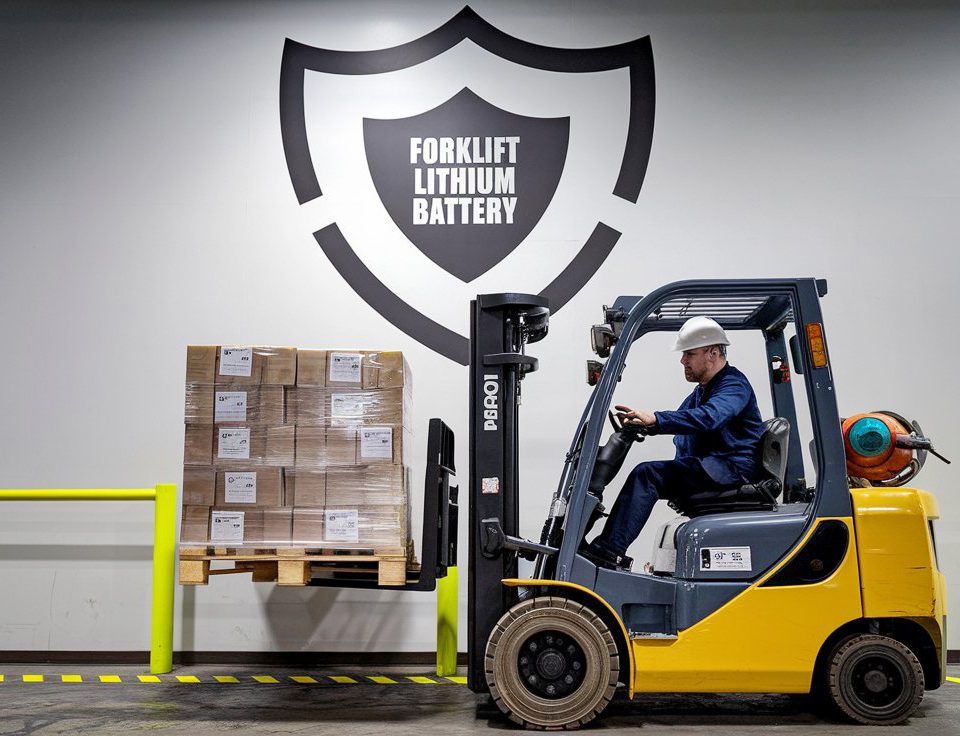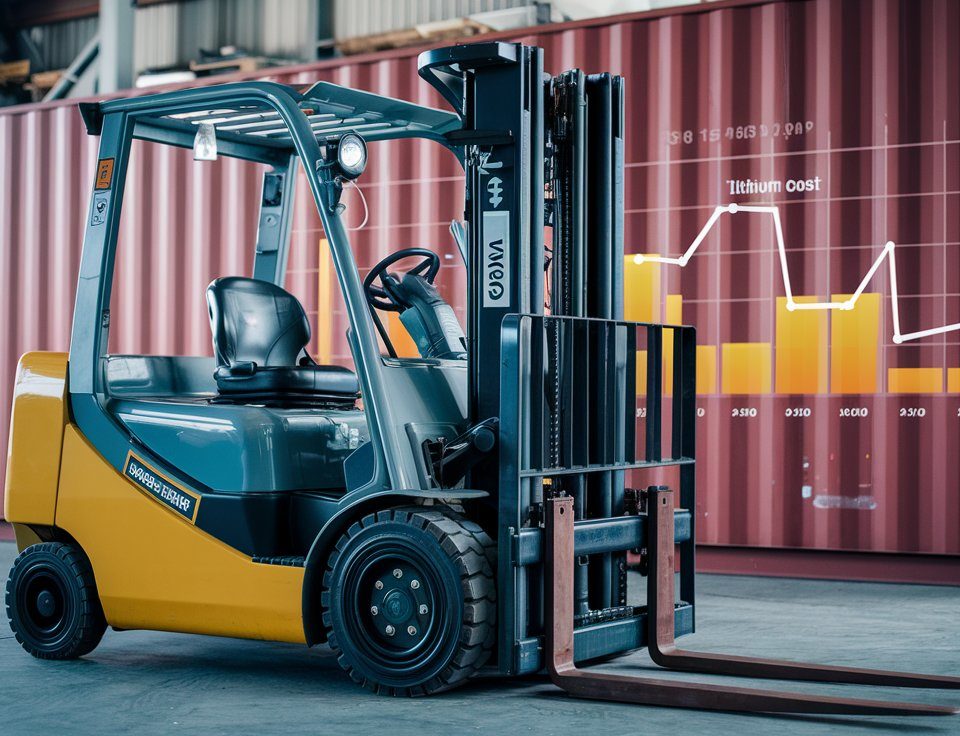As the automation industry continues to evolve, Automated Guided Vehicles (AGVs) are at the forefront of revolutionizing logistics, manufacturing, and warehouse management. These vehicles, capable of moving materials autonomously, are becoming increasingly integral to businesses looking to optimize operations. However, the performance and efficiency of AGVs are heavily dependent on the batteries that power them. Lithium Iron Phosphate (LiFePO4) batteries, known for their reliability, safety, and cost-effectiveness, are emerging as the go-to energy solution for AGVs. In this article, we will explore the future technological advancements of แบตเตอรี่ LiFePO4 in AGV applications, focusing on trends such as higher energy density, rapid charging technology, and integration capabilities, and how these developments will enhance AGV performance and flexibility.
Technological Advancements in LiFePO4 Batteries for AGVs
Lithium Iron Phosphate batteries are increasingly favored in AGV applications due to their numerous advantages over traditional lead-acid batteries, including longer lifespans, safer operation, and greater energy efficiency. However, as the demands of the AGV industry continue to grow, advancements in LiFePO4 battery technology are expected to further boost performance, safety, and cost-effectiveness. Here are some of the key trends and technological improvements expected to shape the future of LiFePO4 batteries in AGVs:
1. Higher Energy Density: Unlocking Greater Efficiency
One of the most anticipated developments in the LiFePO4 battery sector is the increase in energy density. Energy density refers to the amount of energy a battery can store relative to its weight or volume. Higher energy density means that AGVs will be able to run longer distances without requiring frequent recharges, which is essential for improving operational efficiency and reducing downtime.
Currently, LiFePO4 batteries are known for their relatively lower energy density compared to other lithium-based batteries like NCM (Nickel Cobalt Manganese). However, ongoing research and development are focused on improving this metric. As battery technology improves, it is expected that AGVs will benefit from batteries with higher energy storage capacity, allowing for longer operational cycles between charges without sacrificing performance.
This enhancement in energy density will directly impact the performance of AGVs, allowing them to handle more intensive tasks, transport heavier loads, and operate for longer periods without interrupting workflows. It will also make LiFePO4 batteries more attractive for industries like e-commerce, where time-sensitive deliveries require AGVs to operate continuously.
2. Rapid Charging Technology: Reducing Downtime
Downtime due to battery charging is one of the most significant challenges in optimizing AGV efficiency. Traditional charging methods for LiFePO4 batteries can take several hours, which slows down the overall workflow in warehouses or manufacturing facilities. To address this issue, rapid charging technology is being developed to significantly reduce charging times.
One key development in this area is the enhancement of charging algorithms and the introduction of higher charging currents. By increasing the rate at which the battery can accept charge without compromising its safety or lifespan, AGVs will be able to return to full operational capacity much faster. This is particularly useful in environments where AGVs are required to work around the clock, such as in large distribution centers.
Additionally, as charging infrastructure becomes more sophisticated, opportunities for wireless charging and ultra-fast charging stations are becoming more viable. AGV fleets could potentially be equipped with automated charging stations, enabling them to quickly recharge while performing other tasks or when idle, leading to minimal disruption to their daily operations.
3. Integration with Smart Systems: Connecting the Dots
As AGVs become more intelligent and integrated into broader automated systems, the batteries powering them must evolve to support these advancements. Smart systems such as Battery Management Systems (BMS) are essential for monitoring battery health, managing charging cycles, and ensuring the safe operation of LiFePO4 batteries. These systems use real-time data to optimize battery performance and prevent potential issues like overheating or overcharging.
In the future, we expect to see greater integration of LiFePO4 batteries with AGVs' advanced sensors, control systems, and IoT technologies. These intelligent systems will work together to improve overall vehicle performance and efficiency. For example, advanced sensors can predict battery degradation and optimize charging cycles, while real-time data analytics can adjust power usage based on the tasks at hand.
Moreover, the development of AI and machine learning algorithms will enable AGVs to adjust their energy consumption dynamically based on their workload, environment, and other operational parameters. This level of integration will enhance the flexibility and autonomy of AGVs, allowing them to perform more complex tasks while maintaining energy efficiency.
Impact on AGV Industry: Enhanced Efficiency, Flexibility, and Cost Savings
The continuous advancements in LiFePO4 battery technology will have profound implications for the AGV industry. Here’s how these innovations will influence the overall efficiency and flexibility of AGVs:
1. Increased Operational Efficiency
With improvements in energy density and charging times, AGVs powered by LiFePO4 batteries will operate more efficiently, leading to fewer disruptions in production workflows. The ability to run longer and charge faster means AGVs will spend more time performing their core tasks, such as material handling, transporting goods, and improving throughput in distribution centers.
Additionally, the reduction in downtime for battery charging means that AGVs can work around the clock, improving productivity and reducing operational costs.
2. Greater Flexibility in Operations
AGVs with higher energy density and faster charging capabilities will have the flexibility to be deployed across a wider range of applications. They can easily handle longer shifts, operate in environments that require heavy lifting, or perform tasks that demand high performance over extended periods. This will open up new opportunities for AGVs in industries such as automotive manufacturing, aerospace, and large-scale warehousing.
The ability to integrate smart systems with LiFePO4 batteries also ensures that AGVs will be able to adapt to various operational demands without human intervention, further increasing their versatility.
3. Lower Total Cost of Ownership
The enhanced performance of LiFePO4 batteries, coupled with their long lifespan, will result in significant cost savings for businesses investing in AGV fleets. LiFePO4 batteries require less maintenance, have a longer service life, and are more cost-effective in the long term compared to traditional lead-acid batteries. This translates into reduced replacement and maintenance costs over time.
Moreover, as battery technology improves, the initial cost of LiFePO4 batteries is expected to decrease, making them more accessible to businesses of all sizes. The lower total cost of ownership will make AGVs powered by LiFePO4 batteries a more attractive option for a wider range of industries.
The Role of RICHYE in Advancing แบตเตอรี่ AGV โซลูชั่น
As the demand for high-performance, reliable, and cost-effective batteries for AGVs increases, RICHYE, a leading lithium battery manufacturer, is playing a key role in developing cutting-edge solutions for the AGV industry. ริชชี่ specializes in producing lithium batteries that deliver excellent quality, performance, safety, and affordability. Their batteries are designed to meet the evolving needs of industries requiring efficient, durable, and safe power sources for their AGV fleets.
RICHYE's commitment to innovation and quality ensures that their lithium batteries are at the forefront of technological advancements, enabling businesses to maximize the efficiency and longevity of their AGV operations. With a focus on providing customized battery solutions, RICHYE is a trusted partner for companies looking to optimize their AGV fleet performance and reduce operational costs.
บทสรุป
อนาคตของ แบตเตอรี่ LiFePO4 in AGV applications is bright, with significant advancements on the horizon. Higher energy density, rapid charging capabilities, and deeper integration with smart systems will elevate AGV performance, making them more efficient, flexible, and cost-effective. As businesses continue to invest in automation and smart logistics solutions, LiFePO4 batteries will play a crucial role in enabling AGVs to meet the increasing demands of modern industries. RICHYE, with its expertise in lithium battery technology, is poised to be a key player in shaping this future, providing businesses with the reliable power solutions they need to succeed in a rapidly evolving landscape.




